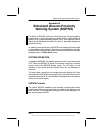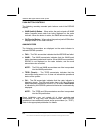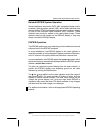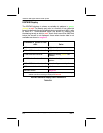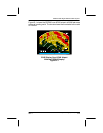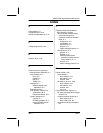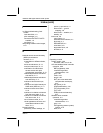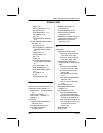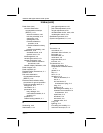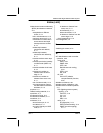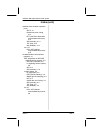
PRIMUS
r
880 Digital Weather Radar System
A28--1146--102--01
REV 1
Index
Index--4
Index (cont)
Radar facts (cont)
rain echo attenuation
compensation technique
(REACT), 5-37
azimuth resolution, 5-53
hail size probability, 5-47
shadowing, 5-40
spotting hail, 5-48
turbulence detection
operation, 5-45
turbulence detection theory,
5-42
turbulence probability, 5-40
stabilization, 5-18
accelerative error, 5-18
dynamic error, 5-18
tilt management, 5-5
variable gain c ontrol, 5-37
weather avoidance, 5-55
severe weather avoidance
procedures, 5-60
weather display calibration, 5-35
Radar Images, 5-31
Radar operation, 5-1
Radiation Safety Precautions, A--1
Radome, 5-54
Rain echo attenuation
compensation technique
(REACT), 5-37
Recommended radiation safety
precautions for ground operation
of airborne weather radar, A-- 1
background, A--2
cancellation, A--1
precautions, A--2
body damage, A--2
combustible materials, A--3
general, A--2
purpose, A--1
related reading material, A--1
S
Shadowing, 5-40
Stabilization, 5-18
pitch gain adjustment, 5-30
pitch offset adjustment, 5-28
roll gain adjustment, 5-29
roll stabilization check, 5-23, 5-25
variable gain c ontrol, 5-37
Stabilization precheck, 5-21
System configurations, 2-1, 2-2
T
Test mode, 4-6
color bands, 4-7
dedicated radar indicator, 4-7
fault code, 4--7
EFIS/MFD/ND, 4-7
noise band, 4-6
target alert block, 4-6
text fault, 4--6
Thunderstorms, A--4
effect on altimeters, A--7
extrapolation to different climbs,
A-- 14
general, A--4
hail, A--7
hail in, A--13
hazards of, A--4
effect on altimeters, A--7
hail, A--7
do’s and don’ts of
thunderstorm flying, A--9
icing, A--6
lightning, A--8
low ceiling and visibility, A-- 7
schematic cross section of a
thunderstorm, A--6
squall lines, A--4
tornadoes, A--5
turbulence, A--5
weather radar, A--8
icing, A--6
lightning, A--8
low ceiling and visibility, A--7
maximum storm tops, A--13







